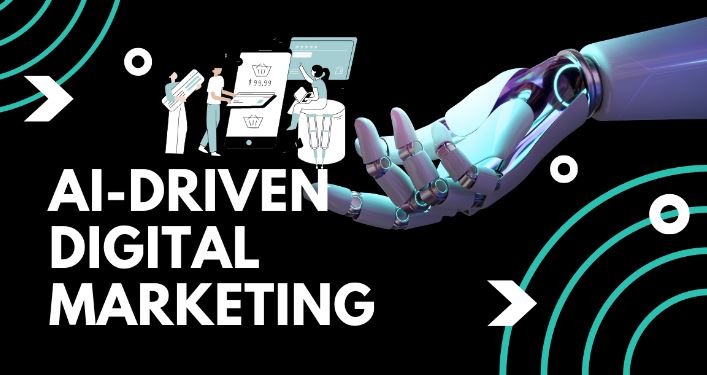
The emergence of artificial intelligence (AI) has reshaped the landscape, bringing ChatGPT and Google Bard to the forefront of the conversation. As ChatGPT and Google Bard enter the chat, it becomes apparent that embracing AI is crucial for staying ahead in the ever-evolving digital marketing sphere. For those who have yet to engage with AI in digital marketing, they are truly missing out on a transformative party that has the potential to revolutionize their strategies and outcomes. This blog enumerates about AI in Digital marketing.
What Is AI In Digital Marketing?
AI in digital marketing encompasses the utilization of advanced algorithms and technologies to automate, optimize, and personalize marketing efforts across various online platforms. It enables digital marketers to analyze vast amounts of data in real-time, predict consumer behaviour, and deliver targeted and customized experiences to their audience.
How Do Digital Marketers Use AI?
Digital marketers leverage AI in multifaceted ways to enhance their campaigns and drive measurable results. Through AI-powered analytics, marketers can gain in-depth insights into consumer preferences, behaviour patterns, and market trends, enabling them to make data-driven decisions and tailor their strategies for optimal performance. AI also facilitates automated content creation, such as ChatGPT and Google Bard producing compelling narratives and engaging copy at scale, saving marketers valuable time and resources.
AI in Digital Marketing Pros and Cons
While the integration of AI in digital marketing offers a myriad of benefits, it also presents its own set of challenges and considerations. Among the pros, AI enables marketers to deliver hyper-personalized experiences, improve campaign targeting and segmentation, enhance customer engagement, and streamline marketing processes for efficiency and effectiveness. However, some cons include concerns around data privacy and security, potential bias in AI algorithms, and the need for continuous monitoring and optimization to ensure optimal performance.
Numerous examples illuminate the diverse applications of AI in digital marketing. From chatbots that provide instant customer support to predictive analytics tools that forecast future trends, AI innovations are reshaping how brands interact with their audience and drive conversions. Moreover, AI-driven content recommendations, email marketing automation, and social media sentiment analysis are just a few additional instances of AI transforming digital marketing practices.
Harnessing the Power of AI
To effectively harness the power of AI in digital marketing, marketers must adopt a strategic approach that aligns with their business objectives and audience needs. Implementing AI technologies requires a solid foundation of data infrastructure, analytics capabilities, and a thorough understanding of the target market. By leveraging AI tools and platforms effectively, marketers can optimize their campaigns, increase ROI, and deliver meaningful experiences that resonate with their audience.
Summary
In conclusion, as ChatGPT and Google Bard join the conversation on AI in digital marketing, it is evident that those who have not yet embraced this transformative technology are missing out on a powerful party. By understanding the role of AI in digital marketing, exploring its applications, weighing the pros and cons, and learning how to use AI effectively, marketers can unlock new opportunities for growth, engagement, and success in the digital realm. Embracing the power of AI is no longer an option but a necessity for those looking to thrive in the dynamic landscape of digital marketing.
